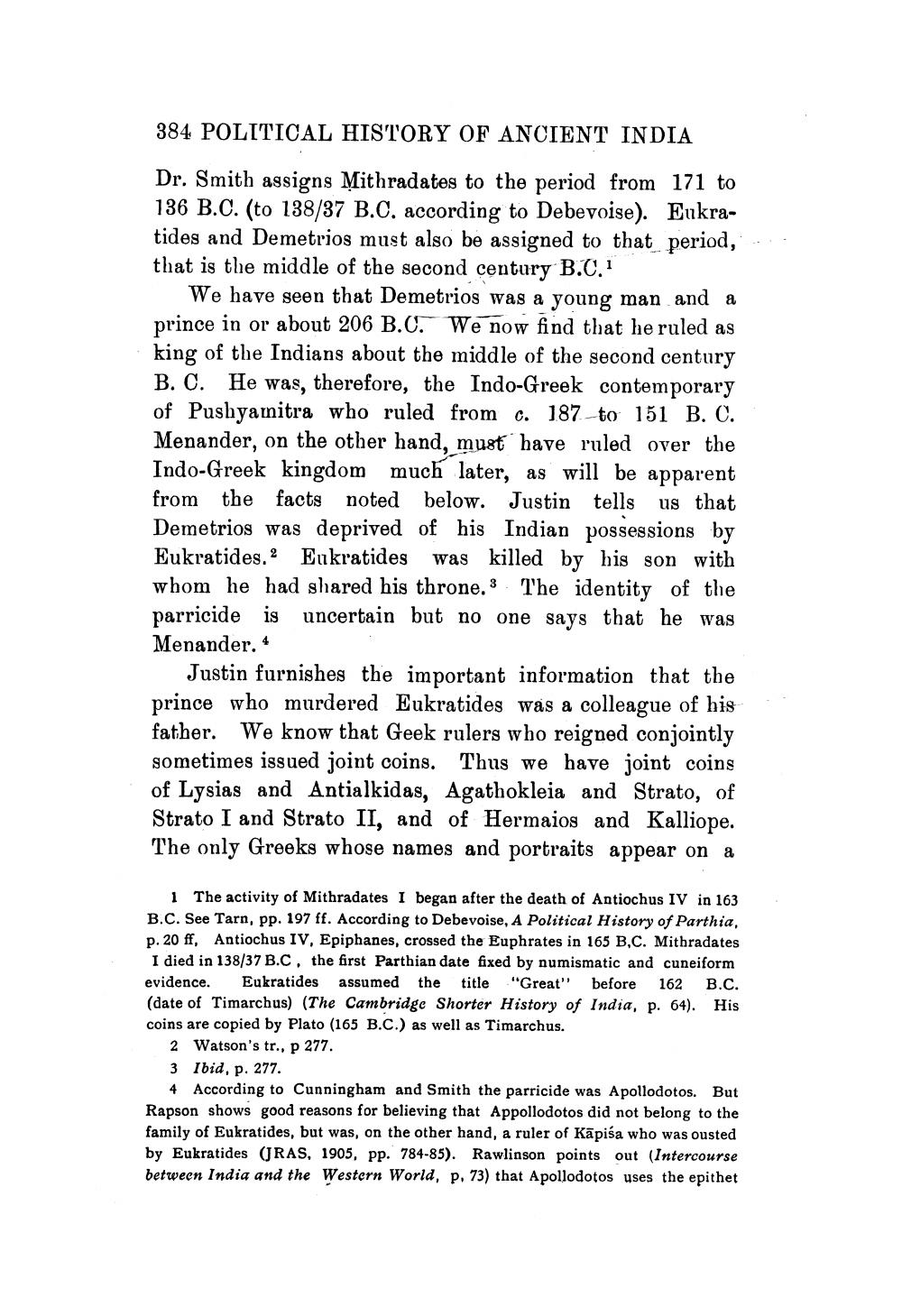________________
384 POLITICAL HISTORY OF ANCIENT INDIA
Dr. Smith assigns Mithradates to the period from 171 to 136 B.C. (to 138/37 B.C. according to Debevoise). Eukratides and Demetrios must also be assigned to that period, that is the middle of the second century B.C.1
We have seen that Demetrios was a young man and a prince in or about 206 B.C. We now find that he ruled as king of the Indians about the middle of the second century B. C. He was, therefore, the Indo-Greek contemporary of Pushyamitra who ruled from c. 187_to 151 B. C. Menander, on the other hand, must have ruled over the Indo-Greek kingdom much later, as will be apparent from the facts noted below. Justin tells us that Demetrios was deprived of his Indian possessions by Eukratides.2 Eukratides was killed by his son with whom he had shared his throne. 3 The identity of the parricide is uncertain but no one says that he was Menander. 4
Justin furnishes the important information that the prince who murdered Eukratides was a colleague of his father. We know that Geek rulers who reigned conjointly sometimes issued joint coins. Thus we have joint coins of Lysias and Antialkidas, Agathokleia and Strato, of Strato I and Strato II, and of Hermaios and Kalliope. The only Greeks whose names and portraits appear on a
1 The activity of Mithradates I began after the death of Antiochus IV in 163 B.C. See Tarn, pp. 197 ff. According to Debevoise, A Political History of Parthia, p. 20 ff, Antiochus IV, Epiphanes, crossed the Euphrates in 165 B,C. Mithradates
I died in 138/37 B.C. the first Parthian date fixed by numismatic and cuneiform evidence. Eukratides assumed the title "Great" before 162 B.C. (date of Timarchus) (The Cambridge Shorter History of India, p. 64). His coins are copied by Plato (165 B.C.) as well as Timarchus.
2 Watson's tr., p 277. 3 Ibid, p. 277.
4 According to Cunningham and Smith the parricide was Apollodotos. But Rapson shows good reasons for believing that Appollodotos did not belong to the family of Eukratides, but was, on the other hand, a ruler of Kāpiśa who was ousted by Eukratides (JRAS, 1905, pp. 784-85). Rawlinson points out (Intercourse between India and the Western World, p. 73) that Apollodotos uses the epithet




